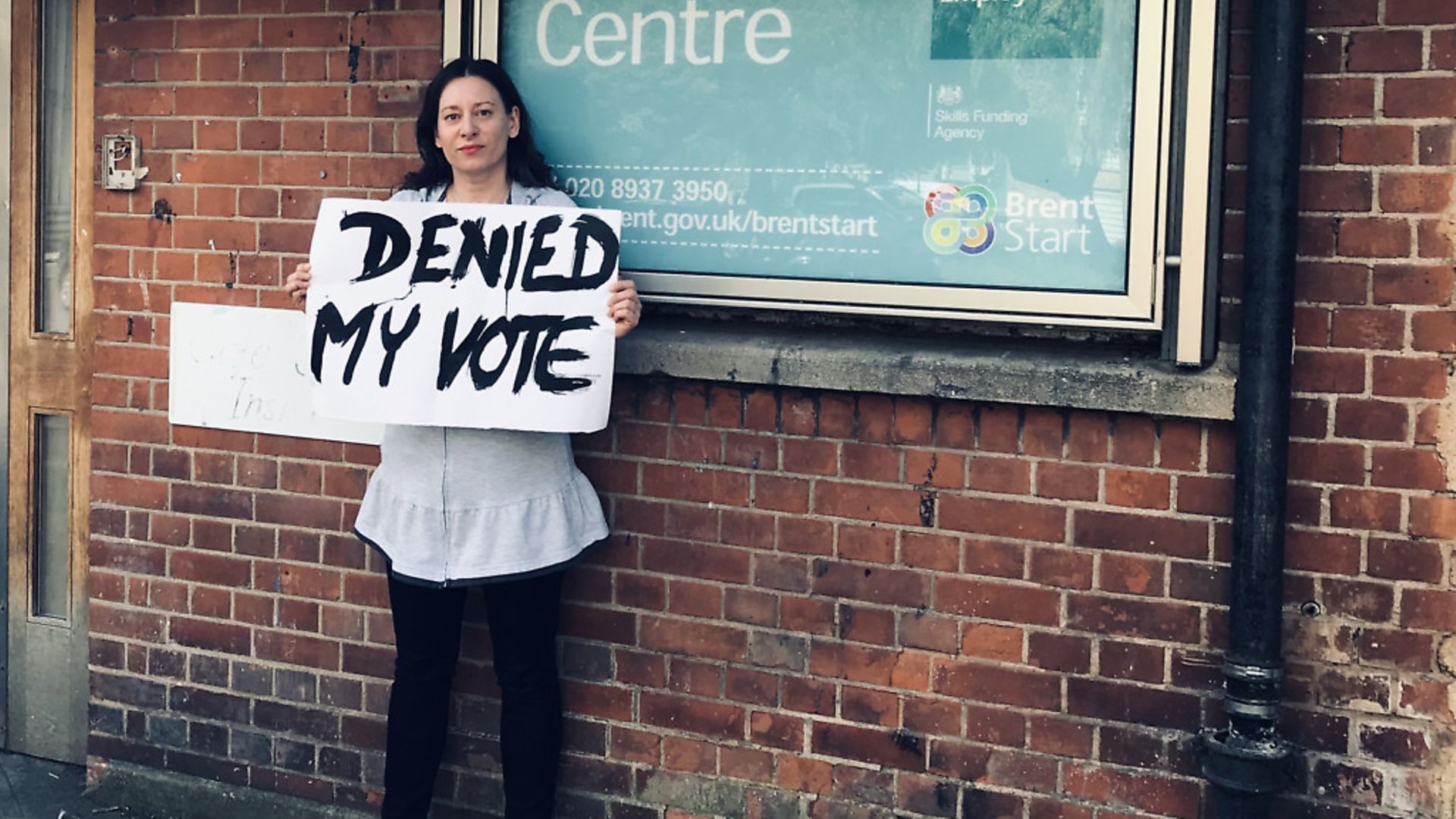
The government has cleared itself of any wrongdoing in the #deniedmyvote saga – but this deeply insufficient response threatens our democracy.
Large numbers of EU citizens were prevented from voting in the UK’s European parliament elections. In many cases, the problem arose out of a little-known registration requirement: EU citizens, unlike their British friends, have to fill in a separate registration form, the UC1 form, declaring that they would vote only in the UK. But they often received this form too late to send it back in time.
READ: EU citizens turned away from UK polling stations despite being registeredBritish citizens living abroad were in for a surprise too: in many cases, their postal voting forms arrived too late to allow participation in the elections. It soon became clear that the problem was widespread, and it is for that reason that, after consultation with the campaign groups the3million and EUinBrum, I set up a petition calling for an independent inquiry into the causes of this situation.
READ: Calls grow for Electoral Commission to investigate #DeniedMyVote scandalThe government denied the request – which is no great surprise. But the reasons make for interesting reading. In its response to the petition, the cabinet office was confident that the government “took all the legal steps necessary to prepare”. In other words: the chaos on election day was not really the government’s fault. Instead, the government helpfully pointed the finger at electoral registration officers and returning officers. And it underlined that this is not the first election in which the UC1 form had been required.
On that issue, at least, they are right. The current system had been used for the 2014 European parliament elections, too – and the number of EU citizens registered to vote fell in that year from more than one million, in 2009, to 327,883. Complaints were lodged with the Electoral Commission, which issued a promise to work with the government to see if the system could be made simpler, so that the problem would not recur “at the next European Parliament elections in 2019”. That obviously did not happen.
The doors are now open for a spirited game of Old Maid. The Electoral Commission, of course, said it is not at fault: in a statement, they declared that they “understand the frustration” of EU citizens, but that improvements to the situation could only be made by government and parliament. Nor, apparently, is the government at fault: in its response to the petition, it declared that it is the electoral registration officers who have the “statutory duty to take the necessary steps to encourage participation by electors”. Meanwhile, the Local Government Association did not understand what the entire kerfuffle is about. “The fact that these elections appear to mainly be going smoothly,” it declared, was testament to the “incredible hard work and expertise” of the councils. Anybody remember the sign that stood on President Truman’s desk, with the words “the buck stops here”? It is safely confined to the warehouse of abandoned aspirations.
Under EU law, however, the position could not be clearer: a 1993 EU directive states that member states must inform EU voters “in good time and in an appropriate manner of the conditions and detailed arrangements for the exercise of the right to vote”. It is the government that is called to action here – and the government does not dispute that. In their reply to the petition, they accepted that the directive addresses them. But they conveniently forgot to mention that particular duty.
And it is not as if they had no opportunity to inform EU citizens in a timely manner. As soon as April 11, when the UK was granted an extension to the Brexit deadline, the government knew that it had to prepare for the elections. That it was possible to do the right thing, is shown by the practice of some city councils: Oxford, for instance, sent the UC1 form to some EU citizens even before April 11, just in case the elections would take place.
WATCH: Less than 0.01% of EU citizens’ voter forms received due to election ‘havoc’, say MPsThe danger of disenfranchisement was raised in parliament on April 25 by Catherine West MP, and in written questions by other MPs. The government chose to ignore all warning signals. The results are staggering. In parts of the country, the UC1 form was received by EU citizens as late as May 4 – with a required return date of May 7. The return rate was, accordingly, extremely low: in Birmingham, it reached a mere 10.56%.
WATCH: Labour calls for ‘full and urgent’ inquiry into denied votes at the EU electionsThis is more than a glitch. Tom Brake, the Liberal Democrat spokesperson on Brexit, talked about the government’s “shocking complacency” in this regard. That may even be a charitable view. From a political perspective, the fact remains that the government has just disenfranchised thousands of voters who are not likely to share its eurosceptic position. Therein lies the true danger of the scandal: it is worrying when a government can easily get rid of troublesome voters by turning a blind eye to registration irregularities. What begins as complacency today may be deliberate policy tomorrow.
And that is why the situation matters, and why we must have an investigation – not an inquiry by the government itself or the Electoral Commission, but by an independent body that was not involved in the making of this situation. We call for it not only for the EU27 citizens whose rights were so clearly affected. We call for it, because the government’s position puts democracy as a whole at risk.
Dr Paul Behrens is Reader in Law at the University of Edinburgh.
His petition can be signed online here.









